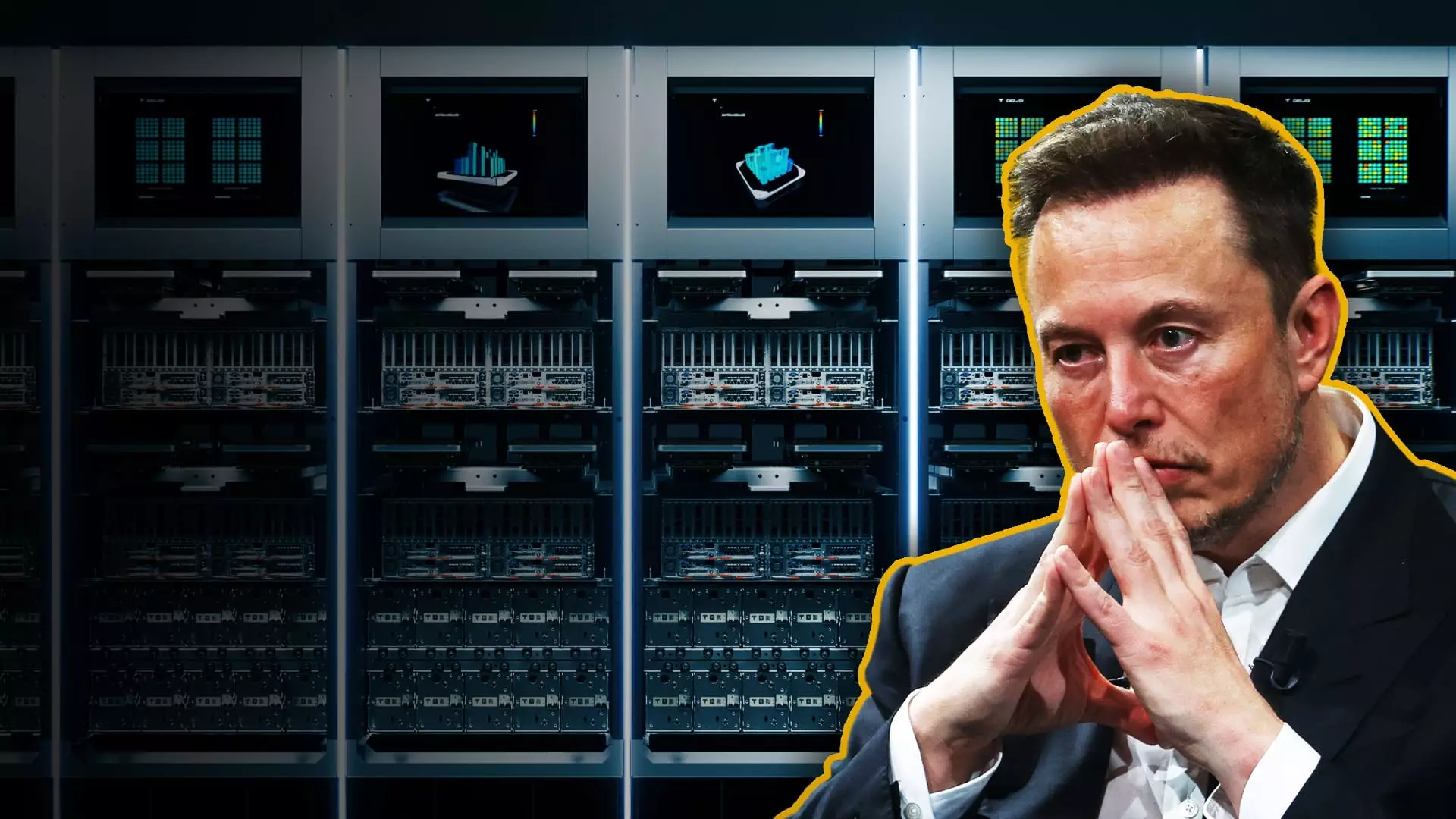Elon Musk, the innovative mind behind major technological advancements, is pivoting his focus toward supercomputing as a cornerstone for his ventures. As the CEO of Tesla and the new artificial intelligence endeavor xAI, Musk envisions a future where artificial intelligence not only enhances automotive functions but also revolutionizes entire business models. This article delves deep into Musk’s ambitions, particularly through the lens of his supercomputing projects, which aim to redefine the boundaries between automated technology and practical applications in our daily lives.
Central to Musk’s strategy is Tesla’s proprietary supercomputer named Dojo, which is designed to harness vast amounts of data collected from the company’s fleet of vehicles. Tesla’s ambitious plan includes an investment of $500 million to establish this supercomputer in Buffalo, New York, with another high-performance computing cluster, known as Cortex, under development at Tesla’s headquarters in Austin, Texas. The primary function of Dojo will be to process and train AI models using the towering quantities of video data and telemetry gathered from Tesla cars, which are outfitted with advanced sensors and cameras. This information serves as a training ground for bolstering Tesla’s driver-assistance capabilities, branded under the Autopilot and Full Self-Driving (FSD) systems.
Despite the nomenclature of Autopilot and FSD, it is crucial to note that Tesla vehicles are not fully autonomous yet. Active driver supervision remains a necessity, a fact articulated by the company itself in its communications. Over the years, Musk’s ventures have encountered scrutiny from regulators concerned about misleading claims regarding the operational limits of these driving assistance features. Nonetheless, the drive towards full autonomy remains central to Tesla’s objectives, particularly as the market increasingly demands innovation in autonomous transport. Musk’s vision surfaces at a pivotal time, especially as competitors such as Waymo, GM’s Cruise, and Amazon’s Zoox are vigorously advancing their own autonomous vehicle technologies.
The stakes are undeniably high for Tesla. Analysts emphasize that the company’s astronomical market valuation is intrinsically linked to the successful rollout of robotaxi services, marking a significant shift in public transport and personal mobility. The latest corporate earnings report raised alarms due to tepid results, indicating that there is urgency in accelerating the development of autonomous vehicles. Musk has hinted at the strategic importance of Dojo in this respect, asserting that it has already been operational since 2023, laying the groundwork for significant advancements enough to shake up the competitive landscape.
In parallel with advancing vehicle autonomy, Tesla is also laying the foundation for utilizing AI in other areas. The potential of the Dojo supercomputer extends beyond mere automotive applications; it is also positioned as an instrumental resource for training Tesla’s humanoid robot, known as Optimus. By deploying this technology within factories, Tesla aims not only to automate its production lines but also to optimize operational efficiency. Musk’s ambitious plans involve a staggering $10 billion investment in AI in the coming year, fundamentally reshaping how the industry views the capabilities of robots in manufacturing.
Elon Musk’s foray into artificial intelligence does not stop at Tesla but extends into the realm of large language models and chatbots through his startup xAI. Launched to create competitive AI solutions against giants such as OpenAI, Microsoft, and Google, xAI seeks to carve its unique space in the AI field, with products like the chatbot Grok at the forefront. Recently, plans were revealed for building another supercomputer, dubbed Colossus, in Memphis, Tennessee. This infrastructure not only positions xAI for robust growth but also showcases Musk’s confidence in the pivotal role that supercomputers will play in shaping the future of AI technologies.
Elon Musk’s venture into supercomputing marks a pivotal shift in the tech landscape, one that promises to redefine the interplay between AI, automation, and personal transportation. With ambitious investments and pioneering projects like Dojo and xAI’s Colossus, Musk is not just charting a roadmap for Tesla, but for the wider industry. As developments unfurl, the globe watches keenly, anticipating the transformative potential of these technologies, which, if successful, could fundamentally alter how we drive, work, and interact with machines.


Leave a Reply